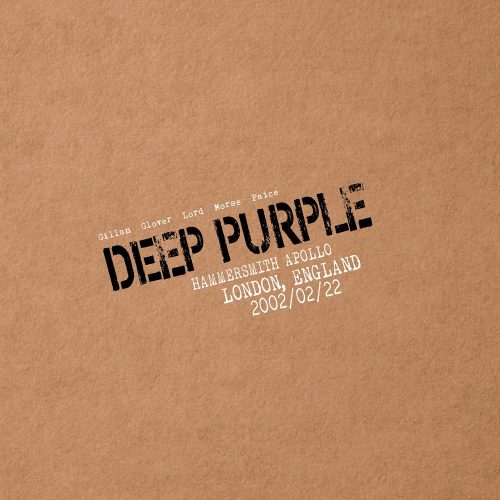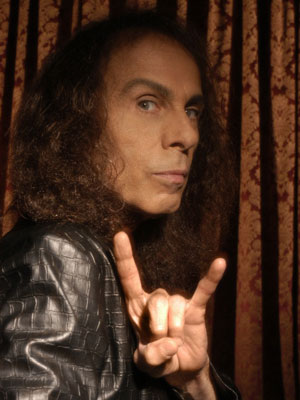
Another release in the Soundboard Series is expected on August 13, 2021 — Live in London 2002. This show, from February 22, 2002, at the Hammersmith Apollo in London, is infamous for a couple of reasons.
First, it was the last show that Jon Lord played with the band from start to finish. He submitted his letter of resignation the same night. He did appear with the band afterwards as a special guest, most notably on the autumn 2002 UK dates that were rescheduled from earlier in the year.
Second, the show was essentially an instrumental one. There was a virus making rounds through the band in that tour. That night it was Gillan’s turn to succumb to it and for all practical purposes he lost his voice. There were attempts to sing here and there, but not terribly successful. From what truly yours can remember of the night — after nearly 20 years of killing the brain cells — the band had to compensate for it with extended instrumental jams. Which makes it unique and kind of peculiar for the hardcore fans. The rest of the tour was cancelled, and… See #1.
Tracklist:
- Woman from Tokyo
- Ted the mechanic
- Mary Long
- Lazy
- No one came
- The aviator
- The well-dressed guitar
- Up the wall
- Black night
- Fools
- Jon lord’s key solo
- Perfect strangers
- Steve Morse’s riff parade
- Smoke on the water
- Speed king
- Hush
It will be available on 2CD and 3LP and is promised to be “carefully restored” from the original 48-track digital tape, mixed and mastered in April 2021. So all the zeros and ones should be in their rightful places /s.
A cover of Rainbow Gates of Babylon done by a neoclassical metal band Lost Symphony with guest musicians, including Dave Abbruzzese (of Pearl Jam fame) on drums. Continue Reading »
Glenn Hughes spoke to the Ohio Music Experience promoting the two upcoming Dead Daisies gigs in the area.
Ohio Music Experience: Thank you for taking the time this evening to speak with us. What have you been doing throughout all this?
Hughes: Like most of us, I’ve been home, as you can imagine. And I’ve been using that time to write more music and that’s what I’ve been doing, exercising, keeping my mind and my body in shape and been writing new music, which is what’s all about.
Ohio Music Experience: I’ve listened to the new album Holy Ground and man what a great disc. How did that all come about? And when did, when did you guys start the writing on that?
Hughes: I joined the band in August of 2019. And when I came in, David Lowy asked me to write some songs, which I did. And we got together in August at Sunset Sound Studio in West Hollywood. I only recorded three or four demos. And then in November of 2019, we moved to the south of France to a Chateau where we recorded, what would be the album you now know called Holy Ground. So in between August to November, we wrote as a unit, the rest of the songs. And now all those months ago, the album has been waiting to come out for so long. And of course the album came out in late January and it’s got amazing reviews and we’re so happy that things are going well.
Continue reading in Ohio Music Experience.
Thanks to Yvonne for the info.

In his recent interview with Planet Rock radio David Coverdale doubles down on his decision to retire after the next tour:
Last year we were supposed to do what was going to be my farewell tour, and it was sold out and it was amazing. Of course, everything was cancelled to Covid. So, God willing, I’ll be able to do it hopefully next year.
With the interviewer expressing some reasonable skepticism, citing other bands’ farewell tours only to come back, DC insisted:
Mine’s going to be the farewell tour because I’m knocking on 70’s door. Are you kidding?! It’s hard enough now to get into my jeans!
I’ll be still involved in music. We’ve got a relatively long-term deal with Warner’s. We have a poop load of projects to do under the Whitesnake banner, it’s just the touring. It’s not the performance so much that is exhausting, it’s the touring and I can’t tour any more comfortably than I do.
There are some more bits and pieces of the interview on the Planet Rock website.
Last year Coverdale had already announced his imminent retirement, only to backtrack a week later.
Thanks to Blabbermouth for the heads up.
Our favourite opera singer continues fangirling over Ronnie James Dio with her analysis of Rainbow’s Gates of Babylon. Continue Reading »
This review of a Deep Purple performance at the Queen Elizabeth Hall in London on May 25, 1970 had originally appeared in the New Musical Express on May 30 that year:
WHEN Jimi Hendrix broke up his Experience and went back to America, a huge gap was left in Britain. On-stage excitement was hard to find. But on Monday night, at the Queen Elizabeth Hall, excitement returned in the shape of Deep Purple.
They played two shows to capacity audiences, and tore the place apart with their musicianship and controlled volume — which ranged from very gentle to vicious ear-splitting level.
Continue reading in Music History For Those Who Are Able To Read.

Glenn Hughes, Tony Iommi, Carmine and Vinny Appice, and many, many others will be taking part in a virtual Ronnie James Dio birthday bash on July 10, 2021. This global livestream fundraising event is organized by the Stand Up And Shout Cancer Fund and hosted by Rolling Live Studios. It will start at 2PM Pacific time.
Tickets go on sale today (June 9) at rollinglivestudios.com with General Admission tickets priced at $20 (Early Bird general admission tickets at just $15 are available through June 16). Special merchandise and VIP packages will also be available. Additionally, a limited number of copies of Rainbow In The Dark: The Autobiography signed by Wendy Dio, will be made available prior to its publication on July 27.
Thanks to BraveWords for the info.
…And once we’re on a Jon bender today, here is another of his long form interviews and a Q&A session. It sounds like this was done in Australia some time early this century. Continue Reading »
Jon Lord would have turned 80 today, June 9. Here he is talking backstage in Hamburg during the Concerto tour in 2000, with Paicey joining the conversation towards the end. Enjoy! Continue Reading »
![[hand]](/hs-pics/portraits/hands/glover4.jpg)
![[face]](/hs-pics/portraits/faces/airey3.jpg)




 Unauthorized copying, while sometimes necessary, is never as good as the real thing
Unauthorized copying, while sometimes necessary, is never as good as the real thing